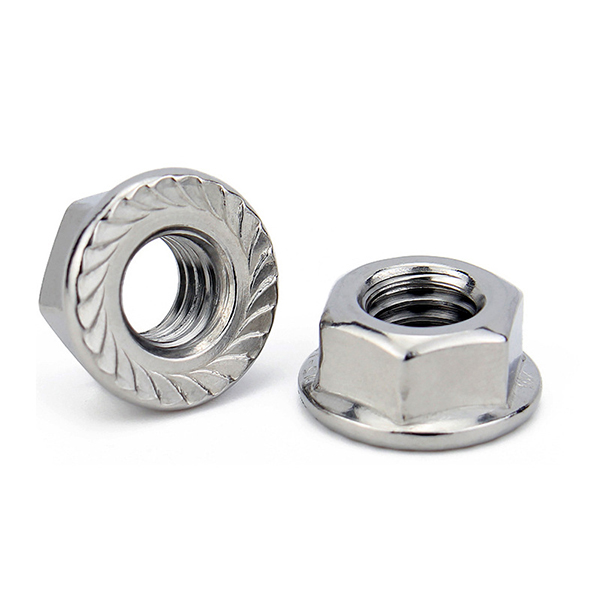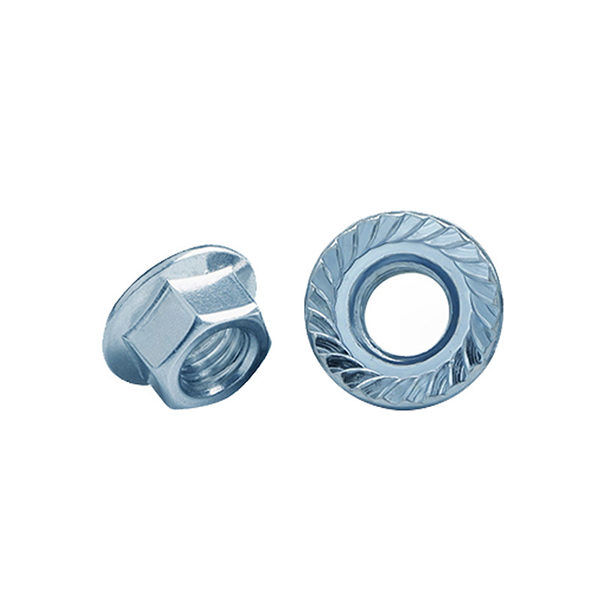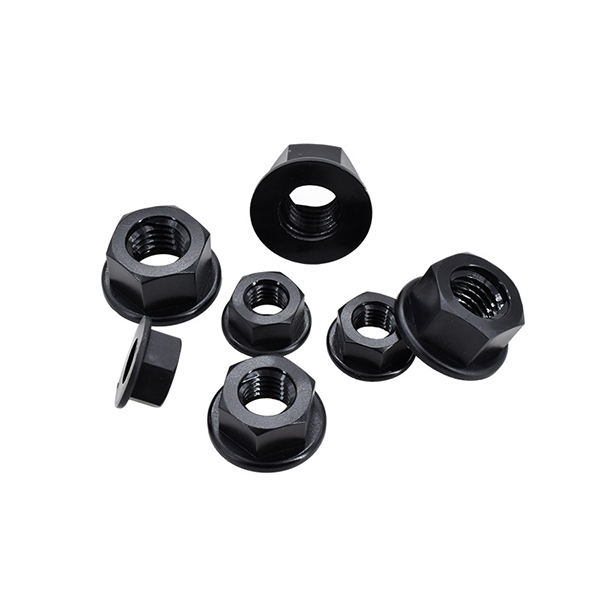Flange nuts feature a hexagonal body with a flange at the bottom. The flange acts as an integrated washer, distributing the load over a larger area and preventing the nut from sinking into the material being fastened. This design also helps to resist loosening due to vibrations. The flange nut’s structure includes internal threading that matches the bolt or screw it is intended to work with, ensuring a secure and tight fit.
Material and Surface Treatment
Flange nuts are manufactured from a variety of materials to suit different environments and applications:
- Steel: The most common material, offering a balance of strength and cost-effectiveness. Steel flange nuts can be found in various grades, each with different strength characteristics.
- Stainless Steel: Provides superior corrosion resistance, making it ideal for outdoor use, marine environments, and other applications where resistance to rust and chemicals is important.
- Brass: Known for its aesthetic appeal and corrosion resistance, brass flange nuts are often used in decorative applications or where a non-magnetic material is required.
- Aluminum and Nylon: Lightweight and corrosion-resistant, aluminum flange nuts are used in applications where weight is a concern, such as in aerospace or automotive industries.
Flange nuts are used in a wide range of industries and applications:
- Automotive Assembly: They are used to secure components in engines, transmissions, and suspension systems, where resistance to vibration is crucial.
- Manufacturing and Metal Assemblies: Flange nuts are used in the assembly of machinery and equipment, providing a secure fastening solution for metal components.
- Construction: They are used to fasten structural elements like beams, columns, and braces, distributing the load evenly and preventing material damage.
- Aerospace: Flange nuts are used in the assembly of aircraft components, benefiting from their lightweight and corrosion-resistant properties.
- Marine Equipment: Stainless steel flange nuts are ideal for marine applications due to their resistance to saltwater and other corrosive elements.
Advantages
- Increased Bearing Surface: The flange provides a larger contact area, reducing pressure on the fastened material and preventing sinking or distortion.
- Vibration Resistance: The larger bearing surface and sometimes serrated flange help resist loosening due to vibrations, making them suitable for dynamic environments.
- Ease of Assembly: The flange can act as a guide during installation, ensuring proper alignment and reducing the risk of cross-threading.
- Cost-Effectiveness: By integrating the washer into the nut, flange nuts can reduce the number of components needed, simplifying the assembly process and potentially lowering costs.
- Versatility: Available in various materials and finishes, flange nuts can be tailored to suit a wide range of applications and environmental conditions.















